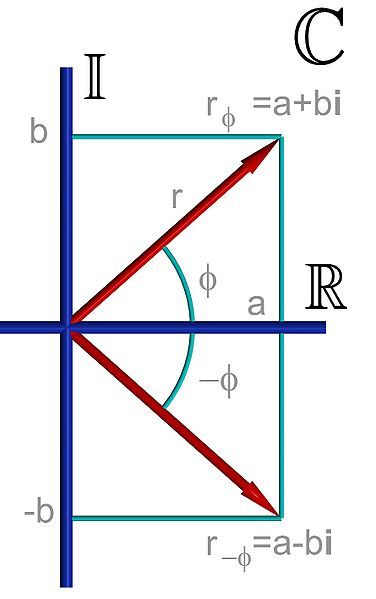My Eighth Problem
 2
cos
(
i
ln
4
)
+
2
sin
2
(
i
ln
2
)
+
i
sin
(
i
ln
4
)
=
?
2
cos
(
i
ln
4
)
+
2
sin
2
(
i
ln
2
)
+
i
sin
(
i
ln
4
)
=
?
Details and Assumptions :
i = − 1
Image Credit: Wikimedia Complex Conjugate
The answer is 1.25.
This section requires Javascript.
You are seeing this because something didn't load right. We suggest you, (a) try
refreshing the page, (b) enabling javascript if it is disabled on your browser and,
finally, (c)
loading the
non-javascript version of this page
. We're sorry about the hassle.
2 solutions
cos 2 θ = 1 − 2 sin 2 θ i think......
First use the logarithmic identity that l o g 4 = 2 l o g 2 .
Then use the double angle formulae.
The problem becomes 2 c o s 2 ( i l o g 2 ) − 2 s i n 2 ( i l o g 2 ) + 2 s i n 2 ( i l o g 2 ) + 2 i s i n ( i l o g 2 ) c o s ( i l o g 2 )
Simplify and factorise by taking out c o s ( i l o g 2 )
= c o s ( i l o g 2 ) × 2 ( c o s ( i l o g 2 ) + i s i n ( i l o g 2 ) )
Now use the trigonometric identities c o s ( x ) = 2 e i x e 2 i x + 1
and c o s ( x ) + i s i n ( x ) = e i x .
The problem becomes 2 e i 2 l o g 2 e 2 i 2 l o g 2 + 1 × 2 e i 2 l o g 2
Since i 2 = − 1
The problem becomes e − 2 l o g 2 + 1
= e l o g ( 4 1 ) + 1
= 4 1 + 1 = 1 . 2 5
Nice problem. I used the identities cos ( i x ) = cosh ( x ) and sin ( i x ) = i ∗ sinh ( x ) to solve this, but your solution is more interesting. :)
Similar to Daniel Ellesar 's solution but maybe simpler. I just used the identity of cos 2 θ = 1 − 2 sin 2 θ .
2 cos ( i ln 4 ) + 2 sin 2 ( i ln 2 ) + i sin ( i ln 4 )
= 2 cos ( i ln 4 ) + ( 1 − cos ( i ln 4 ) ) + i sin ( i ln 4 )
= 1 + cos ( i ln 4 ) + i sin ( i ln 4 )
= 1 + e i ( i ln 4 ) = 1 + e − ln 4 = 1 + 4 1 = 1 . 2 5
The problem should be more than 10 points so that more will try it.